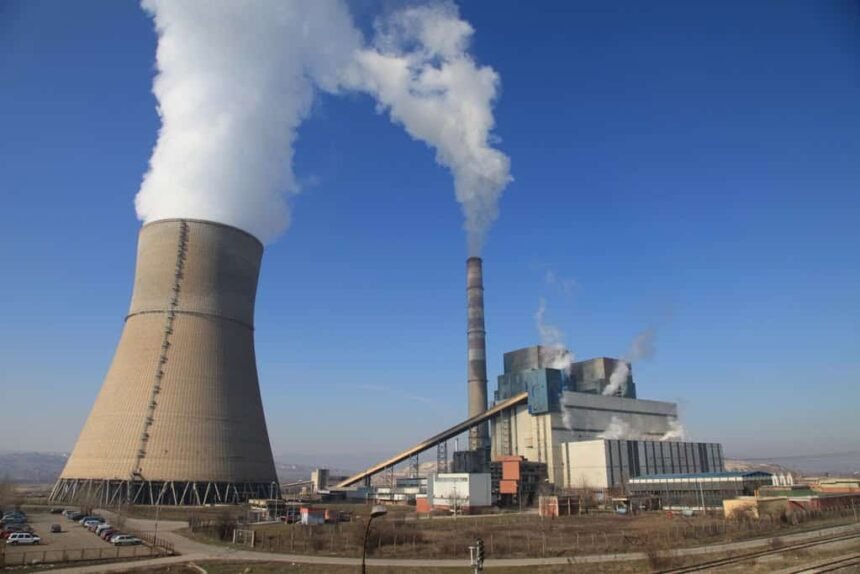Only one block of the “Kosova A” thermal power plant produced electricity on Saturday, leaving all other units, including those at “Kosova B,” offline. This critical situation led to energy imports exceeding half a million euros for a single day, highlighting Kosovo’s significant vulnerability to production failures amid rising demand.
Only Block A3 of the Kosova A thermal power plant was operational, while the other four production units, including Kosova B’s Blocks 1 and 2—which typically generate 60% of the country’s electricity—were out of service.
KESCO, the company responsible for energy supply, stated that on Saturday alone, electricity worth over half a million euros was imported to ensure a stable supply. “We continue to work intensively to meet consumption demand, which is increasing due to high temperatures, specifically the use of air conditioners,” said Margarita Rashiti, KESCO spokesperson. “Today’s import stands at 4,174 MWh, or over half a million euros.”
Data from the European Network of Transmission System Operators for Electricity (ENTSO-E) shows that Block A3 produced an average of 115 MW per hour. With the average Saturday daytime load at around 480 MW per hour, domestic production covered less than a quarter of the consumption.
Soaring Import Prices and Lack of Planning
The Hungarian energy exchange, HYPEX, recorded significant hour-to-hour price fluctuations. On Friday, the import price at 2:00 PM was €3.28, but by 8:00 PM, electricity was being imported to Kosovo at €202.93 per MWh – a staggering 6,000 percent increase.
Energy expert Professor Adhurim Haxhimusa attributes the rising costs to consumers to a lack of planning in both import and domestic production. He recommends that energy companies implement strategies such as reserving generating capacities that can immediately produce electricity for Kosovo when Kosova A and B blocks fail. This, he argues, would help manage the costs of unplanned outages by ensuring supply and making costs predictable. He also suggested long-term electricity purchase contracts as another viable solution.
KEK’s Efforts to Restore Production
Gramos Hashani, Chief Executive Officer of KEK, stated in a press conference on Friday evening that Block B1 is expected to return to operation within 48 hours. He also announced that another Kosova A block would soon be back online.
“Technical teams are also working on units A3, A4, and A5 in parallel,” Hasani said. “We know that unit A3 is producing today and will continue tomorrow. Unit A4 is undergoing major overhaul, and unit A5 had boiler problems reported three days ago. Professional staff from Kosova A are engaged, and the unit will return to operation on Monday or Tuesday.”
According to ENTSO-E data, Kosovo imported €9.4 million worth of electricity in May and nearly €17 million in April, even though production issues were not as pronounced during those months. This consistent reliance on imports underscores the critical need for robust domestic production and strategic planning to ensure energy stability and affordability.







